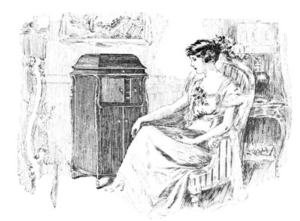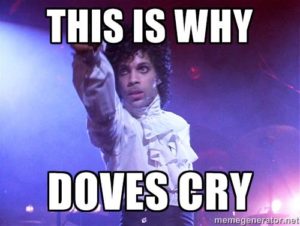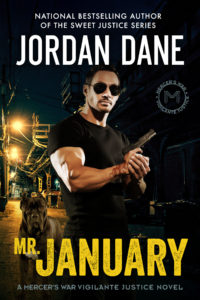By Larry Brooks
Or are we simply dangling from puppet strings manipulated by cloud-dwelling muses who are toying with our dreams?
Or put more scientifically, is our fate determined by some naturally-imbued literary DNA that simply needs awakening?
You know, like Stephen King?
He was born that way, right?
A few weeks ago I rolled out a new line of training videos that seeks to impart some modicum of knowledge and a little principle-based perspective on how to turn that idea kicking around your skull into a viable novel that someone else would actually want to read.
And so, like so many that have partaken of the digital marketing kool-aid, I posted a few announcements and a trailer on Facebook, where I have about 4200 writer “friends” who, of course, are on pins and needles awaiting my next project.
Not one of whom, by the way, even clicked through to my new Vimeo VOD page.
Which only goes to confirm – in my mind, at least, though it’s something I’ve heard repeated a lot lately – that Facebook is an absolutely worthless venue for trying to get other writers to pay attention to what we’ve written.
Ask them if they’d spend a night in a creepy house for one million dollars… sure, that’s what Facebook is all about.
Anyhow… this happened:
Writer/”friend”: Larry, do you know of one successful serious writer who recommends writing classes, courses or study groups? I can name several who advise that writing – creative writing – cannot be taught but is inherent – Twain, Clancy, Rowlings, The Bard….
Me: I know of hundreds, actually. Far more writers who succeed actually dive in to some sort of learning venue, than those who claim to have learned it or delivered it naturally (not sure what that even means). I’ll GIVE you one of the videos, if you doubt its value. Message me if you are willing to see.
Writer/”friend”: Grammar – yes, Structure -of course.
Me: I think the “natural instinct” part best describes a writer’s ability to come up with killer story ideas (Stephen King, for example, the “king” of self-taught, naturally-gifted writers), or not… versus some DNA-driven knack for understanding how it works best on the pages across a story arc, which really doesn’t happen to anyone. Even very highly trained authors still depend on that ability to land on a glow-in-the-dark story idea, and struggle over many drafts to get it right. When we can do both – great idea leading to a strong premise, and we actually understand (because someone has taught us) how to craft dramatic and character arcs, with the perfect touch of prose… that’s the recipe. The latter — it absolutely can be taught. It’s like reading music… it doesn’t make you a great singer, but it helps if you are a composer. So… do you want to see a video? I’d like to make a believer out of you.
Writer/”friend”: Every serious writer struggles, A word, sentence, paragraph, character, loose-end solution, ending, juggling multiple threads, and on. Some are brilliant, have an extraordinary story, a unique point of view, a fabulous editor and some have all of those within their grasp and they get it out, on paper. It’s called talent. You can’t teach the sky to be blue.
Me: Yeah, but you can teach them what a story arc is, the difference between dramatic arc and character arc, the optimal presentation of a scene. I don’t know how many in-progress, unpublished manuscripts and premises you have seen, but I have seen many hundreds (over 700 in the last three years), and I can assure you, the “natural talent” you describe is rare where story execution is concerned. A writer who believes that they are one of them, it’s more likely naiveté and hubris than it is a truly natural talent. I’ve never met a “natural talent” in over 30 years of doing this, at least to the degree you claim is what fuels a successful author. Many people are naturally smart, but that’s a start, not a writing
Many people are naturally smart, but that’s a start, not a writing destination. Because there is so much to know. In athletics, for example, fast and strong beginners don’t go anywhere until and unless they get some fundamentals and muscle-memory in their head. Sounds like you’ve been brainwashed on a lie. If you can truly go to a writing workshop, and walk away saying you didn’t learn anything, that it was of no value… then I’d say you are kidding yourself. I made you an offer to help… you aren’t taking me up on it, which is symptomatic of the hubris that deludes the legion of writers who will never publish a
I made you an offer to help… you aren’t taking me up on it, which is symptomatic of the hubris that deludes the legion of writers who will never publish successfully or at all, because they’ll never be humble enough to admit they don’t know everything they need to know. Most writers, when they begin, don’t even know what they don’t know, and that’s the problem. They think they do, and it’s a lie.
In the end, added to the list of things they don’t know, will be the truth about why their writing dream never came true.
Yeah, because that’s what The Bard says.
That ended the thread. She didn’t take me up on the free video, which was, by any possible interpretation, an opportunity to be trained.
Writers come to the intention of writing a novel armed with a massive breadth of backgrounds.
The most noted commonality is that anyone who wants to write a novel was first, and remains, a reader of novels—let us hope this is true—followed closely by the belief that they “have a way with words.”
Which, among the dozen or so core competencies that a novelist needs to demonstrate, comes at in #12. Because good clean prose, nothing too fancy, is the gold standard in commercial fiction; any attempt to sound like John Irving channeling John Updike will actually get you tossed.
Ironic. Maybe you have a natural gift for words. But in writing, that’s like an actor being good looking… and nothing more. If you’ve ever been to an audtion for a part in a Hollywood movie (I have), you know this gets you nothing other than a seat in the waiting room.
When we read a good novel, it can look easy.
This is true with many avocations, especially in the arts and athletics, where the learning doesn’t seem to be academic in nature. It is said that human beings are natural storytellers because it is in our social DNA, the lineage of our specifies, the very history of it has been marked by stories passed on over generations.
But does that make us storytellers, or story consumers? If it does, it woudl follow, then the inherited inclination to protect our children should make us the next Dr. Phil.
For all the hundreds of billions of human beings that have preceded us on the planet, swapping stories along the way, the names of the immortal storytellers can be fitted onto a plaque on a library door.
My Facebook writer “friend” could not be more wrong.







 I recognize that I am blessed to be able to spend my days living the dream I’ve dreamed since childhood, and that alone puts writers in exotic real estate, especially in the perception of readers. It explains why
I recognize that I am blessed to be able to spend my days living the dream I’ve dreamed since childhood, and that alone puts writers in exotic real estate, especially in the perception of readers. It explains why  one of my favorite pictures of another author is that of Stephen King working in a cluttered space with his feet propped up on the desk. It’s nice to get that peek behind the curtain.
one of my favorite pictures of another author is that of Stephen King working in a cluttered space with his feet propped up on the desk. It’s nice to get that peek behind the curtain.